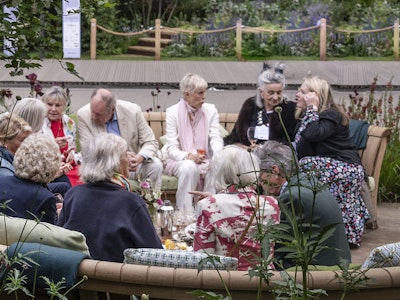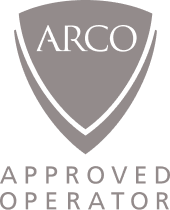What is Assisted Living? Retirement Community Alternatives

In this guide, we explore what assisted living involves, who it’s designed for, and how it compares to other models like fully independent retirement living - as offered at Auriens. Here's what we'll cover:
- What is assisted living?
- Who is assisted living for?
- How does assisted living work?
- Pros and potential drawbacks of assisted living
What is Assisted Living?
Assisted living is a type of housing designed for individuals aged 60 and above who are largely independent, but may require help with daily activities such as bathing, dressing, meal preparation, or medication management. It sits between fully independent retirement living and more intensive care settings like nursing homes.
Assisted living residents usually have their own private apartments, with access to shared spaces and a tailored package of support services depending on the facility. The goal is to enable individuals to continue living as freely as possible, with help on hand when needed.
The term 'assisted living' is often used broadly, but it’s helpful to understand how it differs from other options such as residential care homes or nursing facilities. The emphasis is on autonomy, flexible support, and access to a social and cultural community rather than medical supervision.
Who is Assisted Living For?
Assisted living is best suited to individuals who don’t need 24/7 medical care, but do benefit from some assistance day to day. This might include help with mobility, personal hygiene, or nutrition.
It's also ideal for those who want to maintain the independence they enjoy while having access to safety, community, and the convenience of a managed environment. Residents often find moving to assisted living scheme lets them continue living the life they're used to, with extra support where required and a lot less hassle.
Assisted living is often chosen by people who are beginning to struggle with the demands of home ownership, maintenance, cooking, or similar. It may also appeal to those who live alone and want access to a community of like-minded individuals in a similar stage of life.
How Does Assisted Living Work?
Assisted living works by combining private accommodation with flexible support. Residents live in self-contained apartments, but with staff available at all hours should they need assistance.
Support often includes help with personal care, laundry, housekeeping, and meal preparation. Some assisted living facilities also offer wellness services, recreational activities, transport coordination, and communal dining or lounges.
The appeal of assisted living is the balance it strikes between support and independence. It’s not about full clinical oversight or taking away independence, but removing the friction from day-to-day living. Together, this gives residents the chance to enjoy their time, build relationships, and continue pursuing their interests.
Pros of Assisted Living
Many people find assisted living enhances their day-to-day experience. As well as the support on offer, there is time, energy, and freedom to focus on what they enjoy. Below are some of the main advantages of this lifestyle.
Independence
Residents keep control over their lifestyle and routines, while still receiving support when needed. It’s about protecting autonomy rather than restricting it.
Access to Care
Trained staff are available to help with personal care, medication reminders, daily tasks and more, offering reassurance and practical help.
Social Engagement and Community
From organised events to casual conversations in shared spaces, assisted living offers plenty of opportunities to socialise and form friendships. Loneliness is a risk for many older adults, and assisted living offers built-in protection.
Facilities
Most residences include communal areas like gardens, libraries, lounges, or dining rooms. Others may also offer wellness centres, cinemas, or even salons. This can make the setting feel more like a hotel than a care facility.
Peace of Mind for Families
Knowing that support is close at hand gives significant peace of mind to relatives, especially those living at a distance. It’s reassuring to know that help is available if and when it's required.
Less Maintenance
Help with cooking, cleaning, and maintenance removes daily burdens, allowing residents to focus on what they enjoy. There’s no need to worry about upkeep or household chores.
A Bridge Between Independence and Care
Assisted living provides a good middle ground: just enough support without feeling institutional. It’s a stepping stone that can help delay or even avoid the need for more intensive care.
Cons of Assisted Living
As with any lifestyle decision, it’s important to consider potential limitations alongside the benefits. Assisted living may not be the right fit for everyone.
Here are a few common considerations to bear in mind:
Requires Downsizing
Moving into assisted living often means letting go of a larger home, certain possessions, and a familiar lifestyle. This can be emotional but also liberating, as we explore in our guide to downsizing.
Not Suitable for Those with Complex Care Needs
Assisted living provides help with daily activities, but is not designed for residents who need 24/7 nursing or specialist medical care. Those with advanced conditions may require a nursing home.
Reduced Privacy Compared to Living at Home
While residents have their own space, there may be more interaction with staff or shared spaces than some are used to. How this feels depends on personality and preference.
How It Works at Auriens
At Auriens Chelsea, we offer an independent alternative to assisted living. Our residents live independently in beautiful private apartments, with personalised support available as required.
Auriens Chelsea is not an assisted living facility, it is a distinct alternative offering fully independent retirement living, designed for those who value autonomy but appreciate the option of tailored support if and when needed.
Our residents live in their own rented or purchased apartments, enjoying all the freedoms of independent living, with access to discreet, professional wellbeing and care services via our trusted partner, Draycott Nursing & Care. These services are available by choice, and not as part of a care-led model.
It’s this blend of beauty, care, and community that makes us different. Residents enjoy autonomy, exceptional service, and a cultural atmosphere that feels energising rather than institutional. Auriens is a continuation of the good life, designed to support the way you want to live.
Learn more about how Auriens works, and whether it is a good fit for you.
Find Us
2 Dovehouse Street
London, SW3 6BF
020 4549 8000
Auriens is a member of ARCO, which represents Integrated Retirement Communities in Great Britain. As an ‘Approved Operator’, Auriens aims to comply at all times with the requirements of the ARCO Consumer Code.






